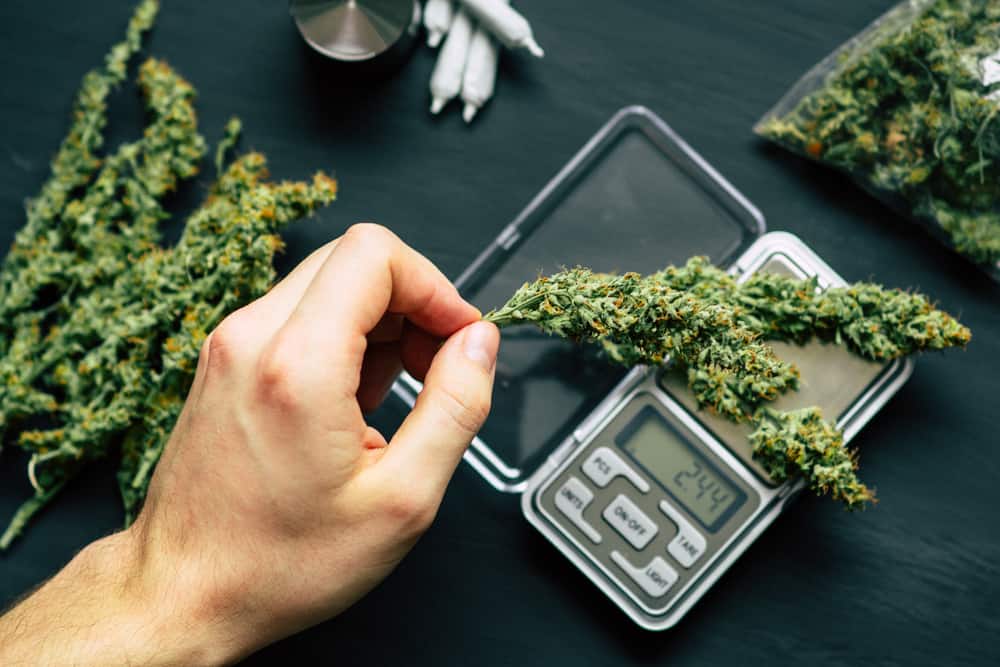Other articles here have mentioned that cannabis prohibition doesn’t mean the cannabis market goes away: it just means that it goes onto the black market. There are several deleterious aspects to this, each worthy of separate discussion. This article will look at the role cannabis prohibition plays in funding crime.
The logic is that, by prohibiting cannabis and by attacking cannabis users through the justice system, it becomes possible to prevent cannabis profits from steadily flowing into the hands of criminals, which would prevent them from being able to fund further enterprises. So criminal activity, and thereby the suffering of the citizenry, can be pre-empted by attacking cannabis users and growers.
As we saw with alcohol, the attempt to prohibit a substance just makes everything about it worse. Alcohol prohibition infamously led to the rise of an entire class of gangsters and bootleggers, the most well-known being Al Capone. Because the substance couldn’t be sold lawfully, it was sold on the black market, and the criminal enterprises who made the profits were happy to use that money to find other ventures.
In Capone’s time, much of that black market money was used to buy firearms, which were then used in the commission of robberies and contract killings. Alcohol prohibition ensured a constant flow of money into the coffers of criminal gangs, and this financed further ventures. Consequently, those criminal enterprises flourished.
We don’t have alcohol prohibition any more, but cannabis prohibition has done a fine job of filling that gap.
The New Zealand Drug Harm Index 2016 stated that “Over $70 million in funding for other criminal activities is provided each year from drug trafficking. The majority of this (nearly 90%) is generated from the sale of cannabinoids.” Another way to write this is to say: Cannabis prohibition puts $60 million into the pockets of criminal gangs in every single year, in New Zealand alone.
This money then finances all the murders, robberies and methamphetamine production that the rest of us have to suffer from. The Police are not wrong when they say that illegal cannabis sales fund further crime – they’re just wrong when they say that the solution is to crack down on it. It’s the cracking down on cannabis that makes it valuable, and this attracts the desperate, greedy and short-sighted.
If a criminal wants to fund the purchase of a large amount of precursors to methamphetamine, they might find themselves in need of a few thousand dollars. This is a similar amount of money to what they could make in one cannabis grow under a 600 watt light, after about three months of growing. Because anyone with a real criminal network knows someone with cannabis clones (or at least seeds), just about anyone inclined to set up a meth operation can also get a cannabis grow started.
Moreover, cannabis prohibition makes it possible to cut up a pound of cannabis into $50 bags and sell them piecemeal. They can do it themselves, or they can get gang underlings to do it – after all, $50 is within the reach of even high schoolers. This makes it possible for criminal enterprises to draw more and more people in.
Under a regime of legal cannabis, such things would not be possible, or would at least be strongly disincentivised. For one thing, cannabis prices are much lower in places where it is legal, and this removes most of the incentive to get involved in selling it. A second factor is that the vast majority of people prefer not to deal with criminals if they can get the same goods from a white market vendor.
So cannabis prohibition makes it possible for a variety of criminal enterprises to get funding, whereas they may not have been able to get off the ground without their backers’ ability to sell cannabis on the black market. A lot of this criminal activity only exists because the law makes it possible. Wherever you have an economic niche, white market or black, someone will step into it.
The common counter-argument that, if cannabis was made legal, gangs would just sell hard drugs, turns out to be the opposite of the truth. The scenario we’re given is that criminals will sell drugs anyway, so it’s better for them to sell cannabis to our children than methamphetamine. The assumption seems to be that criminals choose to sell cannabis in preference to methamphetamine etc. out of kindness.
Leaving aside all the other ways in which this argument is wrong, it takes a certain amount of start-up capital to be able to get in on the market for hard drugs, because it’s necessary to deal with major players. Cooking up a batch of meth takes start-up capital, and even buying precursors usually requires a five-figure sum of cash on account of that people dealing in such are disinclined to make petty deals. Cannabis law reform would make those five figures harder for criminals to come by.
Cannabis prohibition should be repealed so as to take a major source of funding away from criminal gangs. Without black market cannabis, a number of criminal enterprises and schemes would not be able to get off the ground, which would keep our communities safer than cannabis prohibition can.
*
This article is an excerpt from The Case For Cannabis Law Reform, compiled by Vince McLeod and due for release by VJM Publishing in the summer of 2018/19.

